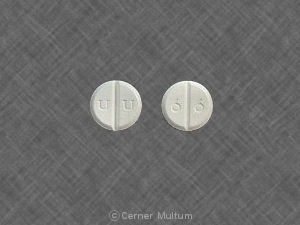Mirapex is a prescription medication used to treat Parkinson’s disease, restless leg syndrome, and other related conditions. It is a drug that is often misunderstood, due to its similarities to opiates. In this article, we will discuss whether Mirapex is an opiate and what makes it different from traditional opiates. We will also discuss the potential risks associated with taking Mirapex and how to ensure its safe and effective use. By the end of this article, you will have a better understanding of whether Mirapex is an opiate, and how it can affect your health.
.

What is Mirapex?
Mirapex (pramipexole dihydrochloride) is a prescription medication used to treat symptoms of Parkinson’s disease such as stiffness, shaking, and difficulty with movement. It is also used to treat restless legs syndrome (RLS). It acts on certain brain chemicals that help to reduce tremors and muscle stiffness. Mirapex belongs to a class of medications called dopamine agonists.
How Does Mirapex Work?
Mirapex works by increasing the amount of dopamine, a chemical messenger in the brain, which helps to reduce the symptoms of Parkinson’s disease. It works by binding to a specific type of dopamine receptor in the brain, which is known as the D2 receptor. This binding helps to increase the amount of dopamine in the brain, which can help to improve movement and reduce stiffness.
Is Mirapex an Opiate?
No, Mirapex is not an opiate. Opiates are medications derived from the opium poppy plant that act on the central nervous system to relieve pain. Mirapex is not derived from the opium poppy plant and does not act on the central nervous system to relieve pain. It is a dopamine agonist, which means it works by increasing the amount of dopamine in the brain.
Side Effects of Mirapex
Common side effects of Mirapex include nausea, dizziness, drowsiness, fatigue, and headache. More serious side effects may include an increased risk of developing compulsive behaviors such as gambling, shopping, and hypersexuality. It is important to talk to your doctor if you experience any side effects while taking Mirapex.
Risks of Taking Mirapex
Mirapex can interact with other medications and may cause adverse reactions if taken with certain medications. It is important to tell your doctor about all medications and supplements you are taking before starting Mirapex.
Can Mirapex Cause Addiction?
Mirapex is not known to cause addiction. However, some people may experience a strong desire to take the medication for non-medical reasons. If you experience this type of behavior, it is important to talk to your doctor.
Top 6 Frequently Asked Questions
What is Mirapex?
Mirapex (pramipexole dihydrochloride) is a prescription medication used to treat symptoms of Parkinson’s disease, such as tremor, stiffness, and slowness of movement. It is also sometimes prescribed to treat restless leg syndrome (RLS). Mirapex works by affecting certain substances in the brain that are involved in controlling muscle movement. It is typically taken as a once-daily pill.
Is Mirapex an Opiate?
No, Mirapex is not an opiate. Opiates are a type of drug derived from opium, and are typically used to relieve pain. Mirapex is not derived from opium and does not have pain relieving effects. It is classified as a dopamine agonist, meaning it works to increase dopamine levels in the brain. Dopamine is a neurotransmitter that helps to regulate movement and emotional responses.
How does Mirapex work?
Mirapex works by affecting certain substances in the brain that are involved in controlling muscle movement. It works by stimulating dopamine receptors, which increases dopamine levels in the brain. This helps to regulate movement, emotional responses, and other functions. It is typically taken as a once-daily pill.
What are the side effects of Mirapex?
Common side effects of Mirapex include nausea, dizziness, drowsiness, constipation, and confusion. Other side effects can include insomnia, hallucinations, depression, and swelling. In rare cases, Mirapex can also cause serious side effects such as chest pain, shortness of breath, and fainting. It is important to talk to your doctor if you experience any of these side effects.
Is Mirapex addictive?
No, Mirapex is not typically considered to be an addictive drug. However, as with any medication, it is important to take it as prescribed and talk to your doctor if you have any concerns.
Is Mirapex safe for long-term use?
Yes, Mirapex is generally considered to be safe for long-term use. However, it is important to talk to your doctor if you have any specific concerns. Long-term use of Mirapex can cause certain side effects, such as nausea, dizziness, and drowsiness. It is important to talk to your doctor if you experience any of these side effects.
How Joann’s getting off Mirapex for her Restless legs after Restless Legs Surgery!
In conclusion, Mirapex is not an opiate, but rather a drug that is prescribed to treat symptoms of Parkinson’s disease and restless leg syndrome. It works by stimulating dopamine receptors in the brain, which can cause similar effects to an opiate but without the risk of addiction. While it may be similar in some ways to an opiate, it is not an opiate and should not be treated as such.
